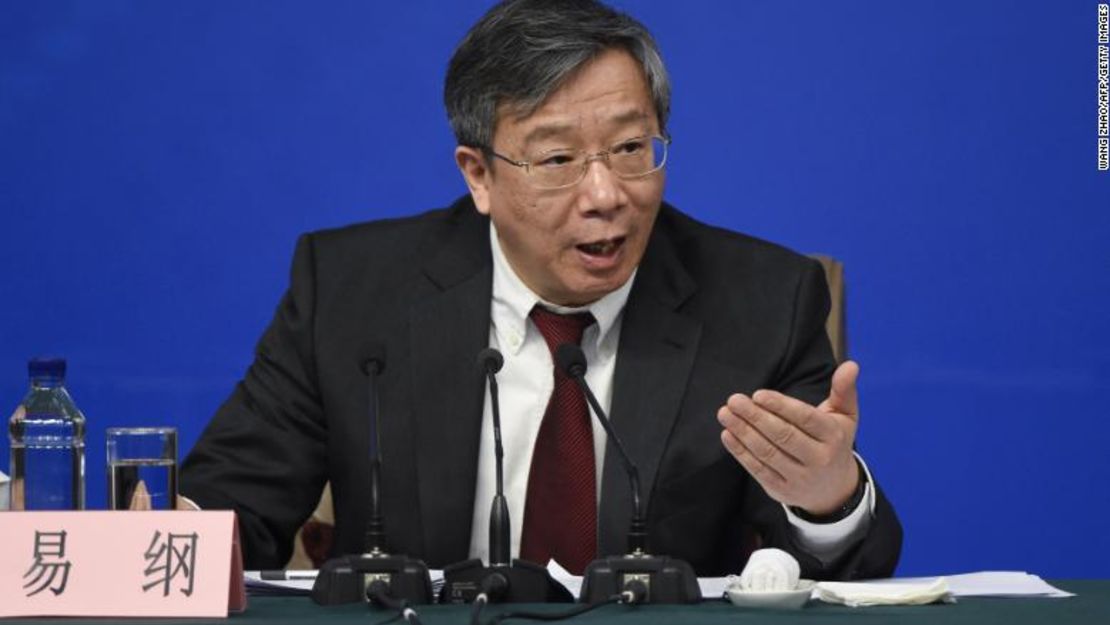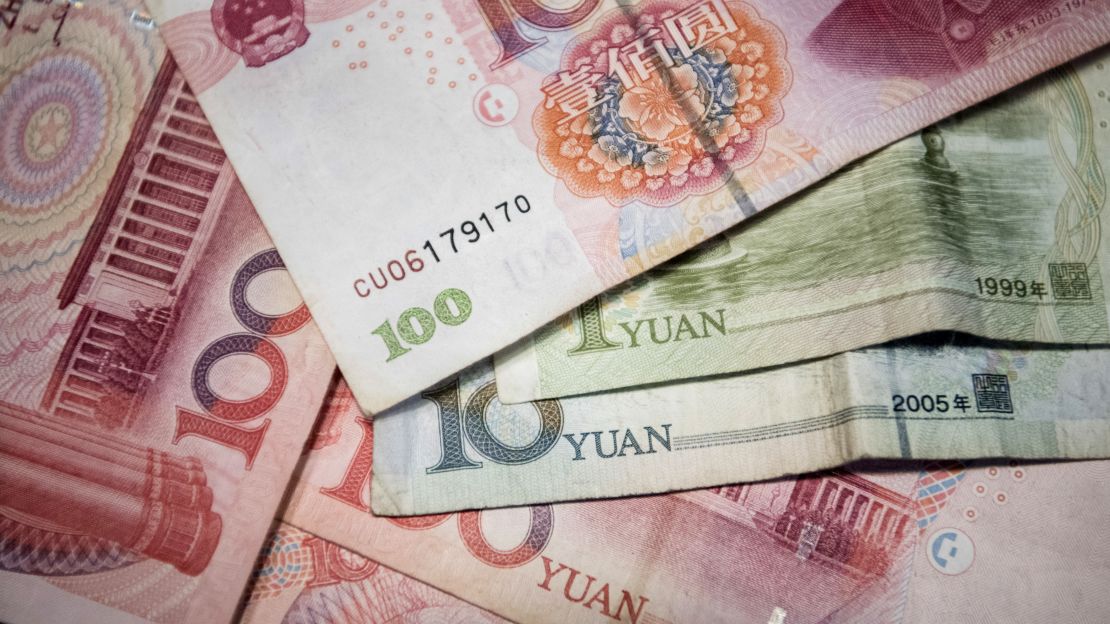Editor’s Note: This story originally published on August 16, 2018.
The yuan has become caught up in the trade fight between China and the United States.
China’s currency has declined around 9% versus the US dollar since April and is trading near its lowest level in more than a year.
The fall has drawn the attention of President Donald Trump, who has previously accused China of keeping the value of its currency artificially low to boost its huge export industry. The yuan is “dropping like a rock,” he said last month.
How much control does Beijing have over what its currency does?
A different kind of currency
The yuan doesn’t trade freely like other major currencies such as the dollar and the pound. Every morning, China’s central bank sets a “band” within which the yuan’s value is only allowed to move 2% up or down.
China has historically had reasons for wanting to keep its currency on a tight leash, said Aidan Yao, a senior economist at money manager AXA Investment Managers.
When China was first opening up its economy in the 1970s and 1980s, it was in the country’s interest to keep the yuan artificially low to make its growing export industry more competitive against Asian rivals, he said.
Another reason is stability. China escaped the worst of the Asian Financial Crisis in the late 1990s, which battered the currencies of nearby countries, because it was largely shut off to foreign investors.
The People’s Bank
Like the Federal Reserve in the United States, China’s central bank sets interest rates to help guide the economy, which can also influence the value of the currency.
The People’s Bank of China (PBOC) also uses other tools, like dictating how much cash Chinese banks must keep in reserve.
But the PBOC works differently. It’s not independent of the ruling Communist Party, so it ultimately takes its orders on monetary policy from China’s top leaders.

The central bank has been known to intervene in the markets either through state-owned banks or by delving into its vast foreign currency war chest to prop up the yuan.
It also drops the occasional big surprise, like when it devalued the yuan in 2015.
“The PBOC is still a major player in the foreign exchange market,” Yao said. “You don’t really see that same kind of intervention with the Fed, European Central Bank or the Bank of Japan.”
The recent plunge
Despite China’s ability to play a significant role in how the yuan trades, analysts are skeptical it has driven the currency’s recent drop against the dollar and other major currencies.
They say the escalating trade war with the United States and concerns over a slowdown in the Chinese economy have helped push the yuan lower at a time when the Federal Reserve is steadily raising interest rates. That policy makes it more attractive for investors to hold US dollars, prompting them to sell other currencies.

Even though a weaker yuan makes Chinese exports cheaper, helping offset the impact of US tariffs, analysts argue that Beijing is more concerned with supporting the yuan at the moment. They point to a recent measure Chinese authorities introduced that made it more expensive to bet against the currency.
Such moves are a “signal of intent” that the Chinese government wants a stable currency, said Viraj Patel, a foreign exchange strategist at investment bank ING.
Even though the yuan has fallen sharply in the past couple of months, the PBOC has said in recent statements that it’s seeking to keep the yuan broadly stable.
What next?
China wants markets to eventually play a far greater role in determining its currency’s value. But it has been gradual process.
Over the past decade, a market has grown for investors to buy and sell a more freely traded version of the currency in financial centers outside mainland China like Hong Kong, London and New York. But its value is still strongly linked to the yuan’s price inside China.
Other initiatives in recent years, such as a stock- and bond-trading links with Hong Kong, have made it easier for foreign investors to buy and sell assets priced in yuan.
“China wants to raise its influence in the global financial system,” Yao said.




